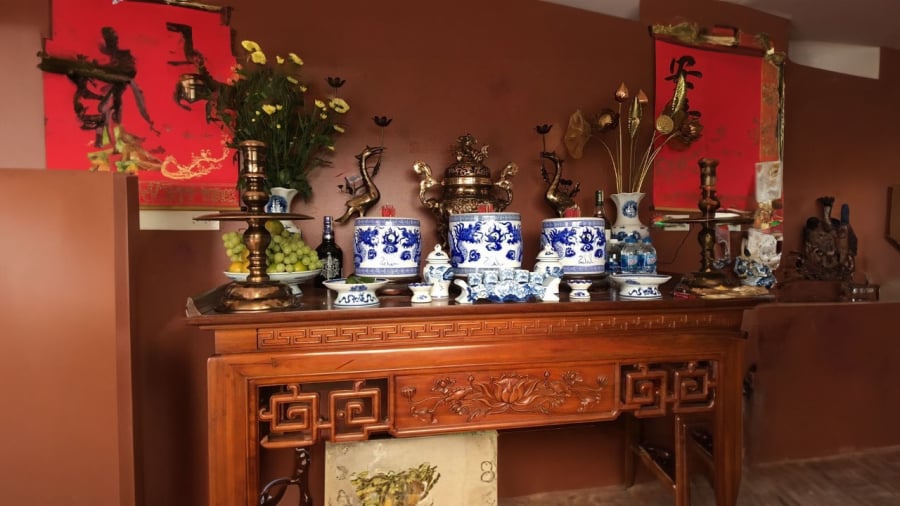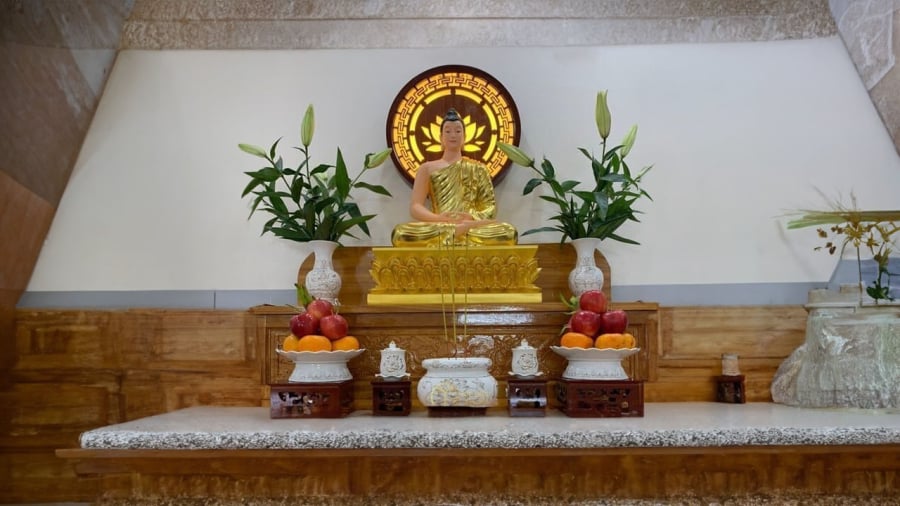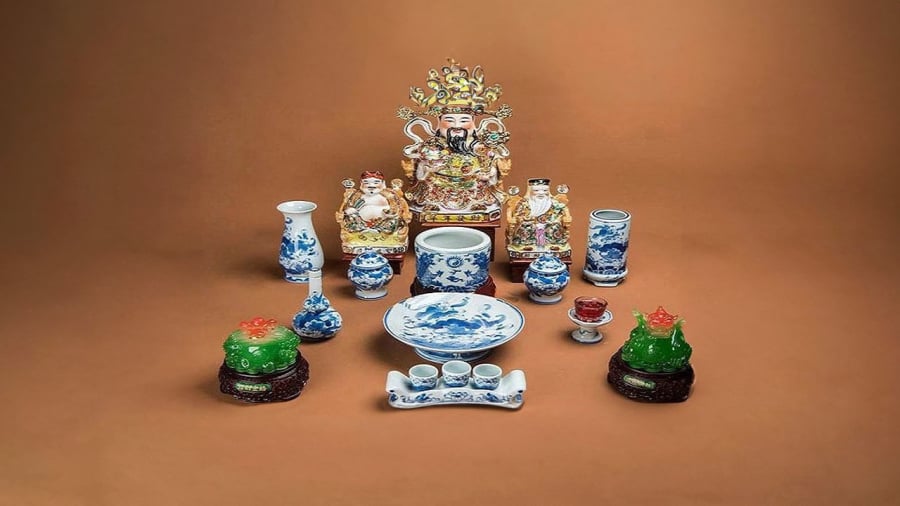In ancient times, water was indispensable in rituals. There is water on the Buddhist altar, the altar of the Wealth God, and the ancestral altar. So what kind of water should be used? What does water symbolize?
The significance of water on the altar
Water is a symbol of life, a means of purification, and a center of regeneration. Water represents wealth and luck. Water for ancestors is also food and drink, reflecting the harmony of the material and the spiritual. In feng shui, water represents wealth. That is why water is always present in rituals. Water on the ancestral altar can be replaced with wine.

Should you use warm or cold water for rituals?
For Buddhists, water represents a pure mind. It is not meant for the Buddha to drink, but it is placed on the altar for the practitioner to reflect upon themselves and see the purity within. Water on the Buddhist altar reminds the worshiper to live in a clean and pure manner, like water, without distinguishing between high and low, rich and poor, wise and foolish. Water represents equality. Therefore, the Buddhist altar usually uses pure water, cool water, and should not use boiled water that has been cooled down, especially not tea or colored water, to reflect the original purity. However, if boiled water is used, it is also acceptable for Buddhists. Spring water, cool water, or boiled water can be used.
For the ancestral altar, the deities, and the spirits, water primarily represents a means of nourishment. Therefore, water on the ancestral altar can be tea, sweet water, colored water, or filtered water. However, according to popular belief, “spirits drink warm water,” so most families will use warm water, meaning water that has not been boiled, on the ancestral altar and the altar of deities.

How should water be placed correctly?
There are usually 3 or 5 water cups on the ancestral altar and the altar of deities. Three cups represent the sincere hearts of the worshiper offering to the deities and ancestors. In order, the three cups are for the ancestors on both sides and the middle cup is for the deities. The three cups are also related to the number 3 in folklore, such as mourning for parents for 3 years, 3 generations… As for the 5 cups, they represent the ancestors, with two cups on each side for the grandparents and the ancestors, and three cups in the middle symbolizing the sincerity of the family towards the deities. The number 5 also symbolizes the five elements “Metal – Wood – Water – Fire – Earth,” and the number 5 in ancestral worship also adds meaning to it. In ancestral worship, the 5 offerings are represented by “Incense – Light – Tea – Flower – Fruit.” For the Buddhist altar, the number 3 represents the three jewels of Buddhism – Buddha – Dharma – Sangha.

Therefore, it is not crucial to have 3 or 5 cups on the ancestral altar, it depends on the size of the altar. If it is spacious enough, 5 cups should be used, and if the altar is small, 3 cups are acceptable.
As for the Buddhist altar, the number of cups is not significant, but usually 3 cups are used to represent the three jewels, or a single cup can be used, emphasizing purity and clarity with a glass cup.
On the altar of the Wealth God, water also represents the accumulation of wealth and prosperity. Therefore, besides the 3 or 5 water cups, there may be a bowl of water for floating flowers or a cup of lukewarm water.
Water placed on the ancestral altar or the altar of deities is usually lukewarm water according to popular belief. For the ancestral altar, tea can be used. Especially on the memorial day of a deceased loved one, the family can also use the type of water that the person used to like when they were alive. For example, if they liked tea, tea can be offered, or if they liked wine, wine can be poured.
Information is for reference and personal interpretation
How Much Laundry Detergent Should You Use in a Washing Machine?
Have you ever asked yourself how much laundry detergent is actually the best amount for your washing machine? According to research, the assumption that more detergent is better may not be accurate. In this article, we’ll investigate this topic and provide insight on how to optimize your laundry cleaning routine.





































